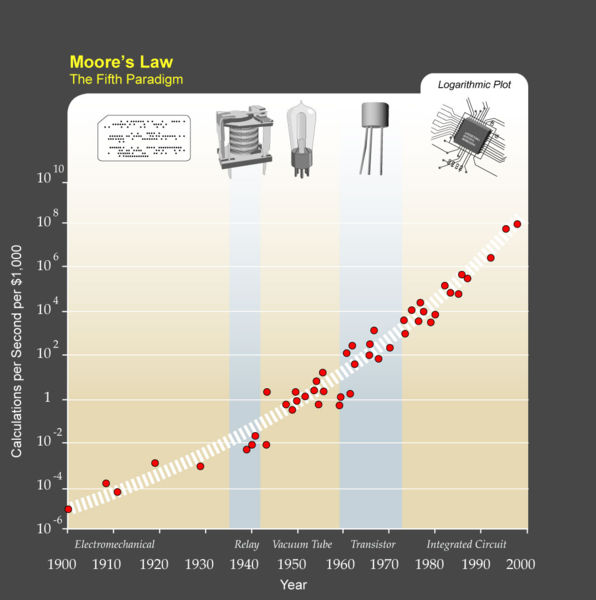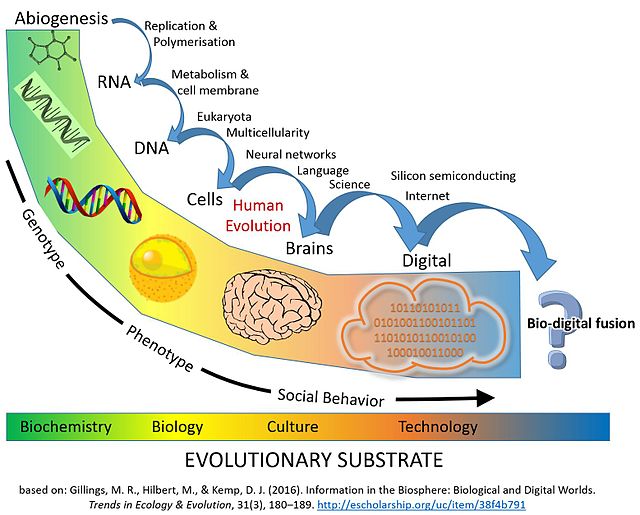Vernor Steffen Vinge was an American science fiction author and professor. He taught mathematics and computer science at San Diego State University. He was the first wide-scale popularizer of the technological singularity concept and among the first authors to present a fictional "cyberspace". He won the Hugo Award for his novels A Fire Upon the Deep (1992), A Deepness in the Sky (1999), and Rainbows End (2006), and novellas Fast Times at Fairmont High (2001) and The Cookie Monster (2004).
Vinge in 2006
Technological singularity
The technological singularity—or simply the singularity—is a hypothetical future point in time at which technological growth becomes uncontrollable and irreversible, resulting in unforeseeable consequences for human civilization. According to the most popular version of the singularity hypothesis, I. J. Good's intelligence explosion model, an upgradable intelligent agent will eventually enter a positive feedback loop of self-improvement cycles, each new and more intelligent generation appearing more and more rapidly, causing a rapid increase ("explosion") in intelligence which ultimately results in a powerful superintelligence that qualitatively far surpasses all human intelligence.

Ray Kurzweil writes that, due to paradigm shifts, a trend of exponential growth extends Moore's law from integrated circuits to earlier transistors, vacuum tubes, relays, and electromechanical computers. He predicts that the exponential growth will continue, and that in a few decades the computing power of all computers will exceed that of ("unenhanced") human brains, with superhuman artificial intelligence appearing around the same time.
Schematic Timeline of Information and Replicators in the Biosphere: Gillings et al.'s "major evolutionary transitions" in information processing.
Amount of digital information worldwide (5×1021 bytes) versus human genome information worldwide (1019 bytes) in 2014




